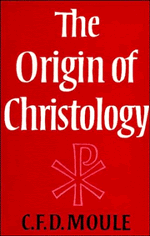Book contents
- Frontmatter
- Contents
- Acknowledgements
- Abbreviations
- Introduction
- 1 Four well-known descriptions of Jesus
- 2 The corporate Christ
- 3 Conceptions of Christ in writers other than Paul
- 4 The scope of the death of Christ
- 5 The fulfilment theme in the New Testament
- 6 Retrospect
- 7 Prospect: the ‘ultimacy’ of Christ
- Excursus: Obeisance (proskunein)
- Index of references
- Index of names
4 - The scope of the death of Christ
Published online by Cambridge University Press: 01 June 2011
- Frontmatter
- Contents
- Acknowledgements
- Abbreviations
- Introduction
- 1 Four well-known descriptions of Jesus
- 2 The corporate Christ
- 3 Conceptions of Christ in writers other than Paul
- 4 The scope of the death of Christ
- 5 The fulfilment theme in the New Testament
- 6 Retrospect
- 7 Prospect: the ‘ultimacy’ of Christ
- Excursus: Obeisance (proskunein)
- Index of references
- Index of names
Summary
There are aspects of the religious experience reflected in the Pauline epistles which make it difficult to avoid the conclusion that Paul thought of the risen Christ in much the same way as a theist thinks of God – as personal but supra-individual. This, as we have seen, is what seems to emerge from an examination of Paul's incorporative language. By contrast, we have just seen that, for most of the other writers in the New Testament, Jesus, though transcendent and uniquely close to God, is conceived of in much more individualistic ways. And yet – and this is the point of this chapter and the next – there are certain assumptions, made in common by Paul and the non-Pauline writers alike, which, by implication, point to precisely that supra-individual aspect of Christ which the non-Pauline writers do not make explicit. In other words, my thesis is that Paul's ‘corporate Christ’ alone ‘makes sense’ of the experience reflected even by the writers who do not explicitly acknowledge it: their assumptions go further than their expressions.
It is two such assumptions that will now be considered. The first, in this chapter, is the assumption that the results of the death of Christ are available universally. The second, in the next chapter, is the assumption that Christ fulfils Scripture.
- Type
- Chapter
- Information
- The Origin of Christology , pp. 107 - 126Publisher: Cambridge University PressPrint publication year: 1977

